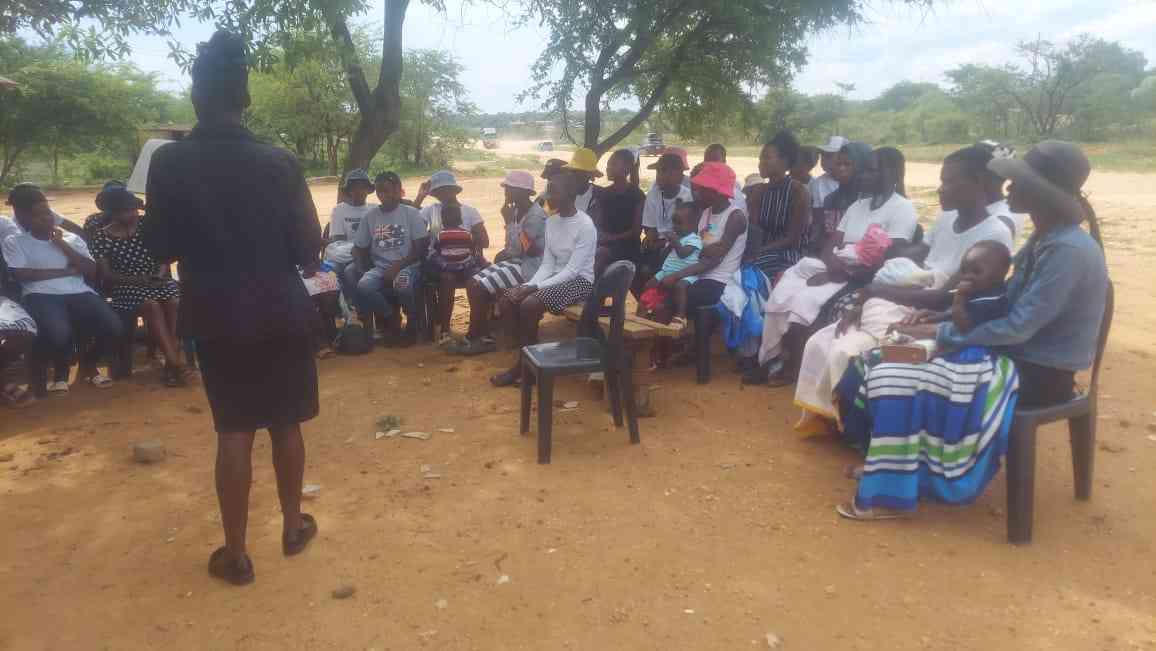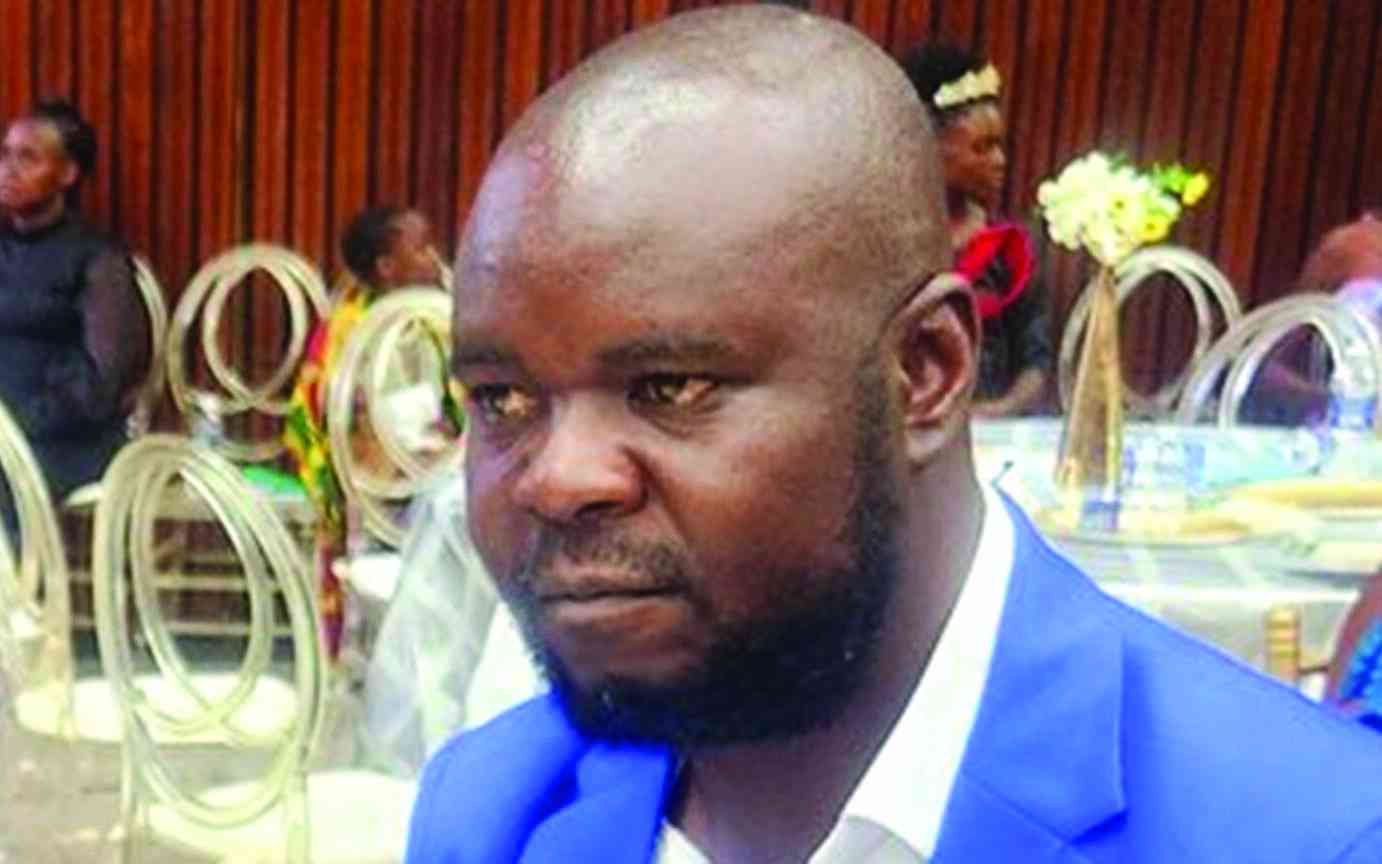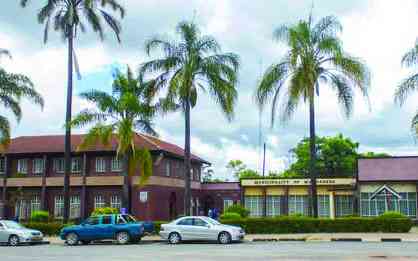
The government has been sending mixed signals over the acquisition of new planes from Malaysia that the state media once claimed were meant for the revival of Air Zimbabwe. However, it has since emerged that the planes are owned by a private company, Zimbabwe Airways, which is set to take to the skies soon.
Zimbabwe Airways’ ownership is shrouded in secrecy amid claims that former president Robert Mugabe’s family owns the airline.
Our senior reporter Xolisani Ncube (XN) last week spoke to Transport minister Jorum Gumbo in an exclusive interview, in an attempt to clear the air on the venture. Gumbo revealed that Zimbabwe Airways was an offshoot of a government initiative to acquire planes from Malaysia, but was owned by Zimbabweans based in the United Kingdom and Dubai.
He also revealed why President Emmerson Mnangagwa chose to use Fly Africa instead of Air Zimbabwe during his maiden foreign trip to South Africa last Friday.
XN: Minister, what is the government doing to rescue Air Zimbabwe?
JG: The aviation industry is not performing well globally. It becomes worse with countries like Zimbabwe where we run our own Air Zimbabwe, which has not been performing well for years.
I am glad to say despite all the challenges, Air Zimbabwe is now flying, but it has its problems. When I was appointed Transport minister, I discovered that its books were not really in good shape and even up to now, they are not in good shape. I then requested Cabinet to allow me to look for partners for Air Zimbabwe. In its own wisdom, Cabinet allowed me to look for partners for Air Zimbabwe.
I listed down 12 companies, which included three airlines from Africa. These were Ethiopian Airways, Kenyan Airways and Air Egypt. I also looked beyond Africa, Turkish Airlines, Emirates, Qatar, China Air, Singapore, Air Malaysia, Qantas and Lufthansa.
- Chamisa under fire over US$120K donation
- Mavhunga puts DeMbare into Chibuku quarterfinals
- Pension funds bet on Cabora Bassa oilfields
- Councils defy govt fire tender directive
Keep Reading
Having done that, my negotiations started with the African airlines. the first snag then came in when they looked at the worthiness of Air Zimbabwe. They were not happy.
I visited Ethiopia. I visited Kenya because I wanted an African arrangement, then I looked beyond Africa. The first port of call outside Africa was Malaysian Airways.
When I visited Malaysian Airways, I discovered that they were not doing very well but they had already engaged PWC (Price Waterhouse Coopers) and were the ones who were running their affairs.
So I decided to engage them to partner Air Zimbabwe. They declined because they found out that our financial position was not that attractive. They also raised their own problems; they had one plane, which was shot down and another one had disappeared and both these planes are 777-200 ER. Since there were quite a number of these planes, they decided to ground them. And they said if Zimbabwe was interested, they would sell us the 777-200 ER. And the arrangement was that we would pay them as we traded.
I got interested, I then started negotiations and then reported back to government that I could clinch a deal here, but we had no money.
I told Cabinet that this deal needed money; the Malaysian people wanted us to pay something. Air Zimbabwe could not afford to pay anything.
XN: Were these efforts only about reviving Air Zimbabwe or there were other parallel processes?
JG: I was disappointed after having gone this far with negotiations trying to capacitate Air Zimbabwe so that it could come back on its feet. I was doing all this with a team from Air Zimbabwe, and a team from the Civil Aviation Authority of Zimbabwe because my knowledge in this field is limited. We looked at the planes, we inspected them, our engineers and so forth and so on, we were pleased because some of these planes were five years old and the other two were 12 years old — fairly new.
We had managed to negotiate for a good price — $70 million for four — so I couldn’t just let this go down just like that. The fortunate part is government had a proposal to engage our people in the diaspora. I was approached by former Air Zimbabwe pilots who are based in London and some are based in Dubai.
They approached me and said they were interested in coming up with alternative planes to make sure that Zimbabwe’s colours remained in the air.
I allowed them to do so. So I told the first group that approached me of this opportunity that had presented itself. I explained to them how far I had gone with negotiations and I wanted them to take it up from where I had left in negotiating for government. I wanted them to continue and I pledged to help them and play a facilitator’s role.
That is what I did. They formed their own company called Zimbabwe Aviation Leasing Company and that is the group of people that I am assisting. It’s a consortium of Zimbabweans, some of who are in Zimbabwe and are represented by a law firm called Philips Law. So this is the group of Zimbabweans to who I have surrendered all the work that I had done for the planes procurement in the hope that we would get money to capacitate Air Zimbabwe.
XN: Zimbabwe Airways is what you are talking about? JG: Indeed, this is the company called Zimbabwe Airways or Zim Airways in short.
XN: There have been reports that this company is owned by former president Robert Mugabe. Can you please explain his role there?
JG: I categorically refuse and tell you that there is no connection whatsoever with the former president in this deal. I can tell you that on my first trip, with my team of eight people coming from Civil Aviation Authority of Zimbabwe and Air Zimbabwe, we boarded the same plane with His Excellence when he was going to Singapore.
He dropped us in Malaysia and we carried on with our journey and if that is the reason people are saying he owns the company, it is unfortunate.
The former president of Zimbabwe has nothing to do with this (Zim Airways).
XN: So what is your role now that Zimbabwe Airways is a private entity?
JG: As minister of Transport and as someone who facilitated this deal, I am being briefed on developments here and there. As government, we are there to help the private sector and I am doing that.
XN: When can we expect Zimbabwe Airways to take to the skies?
JG: The deal is already finalised. What is happening at the moment is that the Zimbabwe Aviation Leasing Company has already managed to get two planes, which are now waiting to come to Zimbabwe.
What they are now waiting for is the licence to fly. That is what they are working on at the moment. If that is done, they will come to Zimbabwe.
They are also in the process of looking for smaller planes, which will do regional rounds. Locally they will fly to Victoria Falls, Bulawayo, Buffalo Range and so on and so forth and also in the region they will fly to the DRC (Democratic Republic of Congo), Tanzania, Zambia, Namibia etc., which is excellent work if they do it.
Right now as I speak to you, the four planes, which we had initially targeted for Air Zimbabwe, and then surrendered to this leasing company, are in the process of being moved to Zimbabwe.
But two of the planes are already branded in Zimbabwean colours and the other two are under inspection by Zimbabwe Airways engineers.
We are assisting them for the benefit of Zimbabwe, not individuals or for the benefit of the former president.
For your information, I went into a flight test with these guys from the Zimbabwe Leasing Company, which we did and I am not leaving these people on their own because it is beneficial to Zimbabwe.
I must facilitate for them. They are Zimbabweans who want to see Zimbabwe back on the international map.
XN: Does the government have any tangible plans to revive Air Zimbabwe?
JG: 100% my brother, we are still looking at modalities to capacitate it and ensure it flies again but we are hamstrung because of finances.
We are going into the route of trying to lease; we want to lease some aircraft. I have advised the board to look at the possibility of leasing some aircraft and I think they are talking to some countries.
XN: Last Friday President Emmerson Mnangagwa used Fly Africa for his trip to South Africa. Does this not contradict your position that the government is committed to reviving Air Zimbabwe, and what about reports that the president’s family is linked to Fly Africa?
JG: Look, generally the bookings for the head of state and government, be it the current one or the former, are done by the Office of the President and Cabinet.
We are not involved and they pay. However, in this case, Air Zimbabwe is operating with one plane and this is the peak season. Their flights are fully booked at the moment.
Should you disturb their schedule just to accommodate the president or you look for an alternative?
We have a desire to see Air Zimbabwe being viable and we opted to hire a plane, which was lying idle. Those guys at Fly Africa are not very active and we said, it is better to use their plane and pay something like $200 000 than to disturb Air Zimbabwe, which is trying to grow its market share and be a reliable airline in Africa.
On the issue of Fly Africa being owned by people linked to the president or not, I have no information to that effect. All I know is that the airline is owned by white people but is registered in Zimbabwe.
XN: So you can confirm the decision to use Fly Africa had nothing to do with alleged connections to the president?
JG: As far as I know, it was the only airline, which was idle and affordable for the trip.
We could not disturb our Air Zimbabwe and prejudice it in terms of long-term business benefits. Look, the single aircraft that flies to South Africa also goes to Bulawayo then to Victoria Falls and back to South Africa and then to Harare.
This is a very crucial time, we have tourists coming into the country and we earn something as a country.
We can’t risk all that just to fly the president and get $200 000 or so from OPC. If you look at your economics there, you will realise that we did the right thing.
The issue that as a country we should focus on is to have more planes that fly and are permitted to land outside the country. Our planes need retooling. They are old. We have the other plane, which is stuck in Egypt because we could not pay for the service, it’s a big challenge.
XN: What is required to revive Air Zimbabwe?
JG: We need something like $330 million to deal with the debt and I have moved that government assumes this debt so that we could give a new lease of life to the airline.
Also, we have to deal with the staff and work culture at Air Zimbabwe, just like at all other parastatals. If you look at the debt itself, the big part is for workers who mismanaged the airline. It is very bad and draining government to be paying people who are doing nothing. We have to change that culture. XN: There is a picture circulating on social media of a mansion housing the Zimbabwe Airways offices and is said to be owned by your “daughter” Mavis Gumbo. What is the relationship between Mavis and Zimbabwe Airways?
JG: It is unfortunate that as Zimbabweans, we have reduced ourselves to such levels. yes, it is true that Mavis is my daughter, she is the daughter of my brother and I am proud of her.
Yes, it is true that she is a hardworking person who has a few properties and one of them is housing Zimbabwe Airways. However, I was not involved and I am not involved in the day to day operations of this private firm. By the way, this is a private company of Zimbabweans based outside the country, so my role is to facilitate trade for them.
I understand that when they were looking for an office, they went to an estate agent who led them to Mavis’ property. They liked the place and entered into private arrangements with the estate agent. I have never set foot at those offices because it is not even a state company, but a private thing, which I am just helping, like I would do for you if you were to start your own airline.
XN: Do you think Zimbabwe Airways will survive the negative publicity around its ownership?
JG: What I think the Zimbabwe Aviation Leasing Company have to do, is to market themselves, which I know they are doing. They have already given me their business plan. I know that they are working with Boeing and also PwC and are being advised on what to do. I don’t think they will fail. I know that they are also putting up offices at Robert Mugabe International Airport for ticketing and so on and so forth.
So the moment they are ready with their things, they must then move and market themselves as Zim Airways, which is different from Air Zimbabwe just like FastJet.
XN: What does the coming in of the new airline mean for Air Zimbabwe?
JG: Air Zimbabwe is our baby and it will continue to operate as a national airline and we are doing everything to capacitate it. The unfortunate thing about Air Zimbabwe right now is that it has very aged planes and as you might know, they are even banned from flying some of their planes in some countries.
Even to countries like South Africa, only one aircraft is allowed to fly to South Africa.
More so, we cannot fly to Europe because of the age of our planes and other debt issues.
The truth of the matter, which we need to solve very fast, is that Air Zimbabwe’s aircraft is now too old.
XN: Does the government take any responsibility for the demise of Air Zimbabwe? Mugabe used to commandeer planes and this played a role in crippling the airline.
JG: For your own information, the former president is one of the people who kept Air Zimbabwe alive, each time he flew, he would pay.
At no time did the Office of the President and Cabinet fail to pay. In fact, OPC pays in advance and this has been the norm over the years.
They charter the plane and the OPC pays for it. It’s not like Air Zimbabwe does it for free. To say government crippled Air Zimbabwe would be unfortunate.
The issue is poor management and poor work ethic, which has caused most parastatals to collapse.
Also, in the case of Air Zimbabwe, old equipment and debts, I am talking about international debts, which have resulted in us not going to London.
We need to settle all those things and I hope this new government will deal with that.











